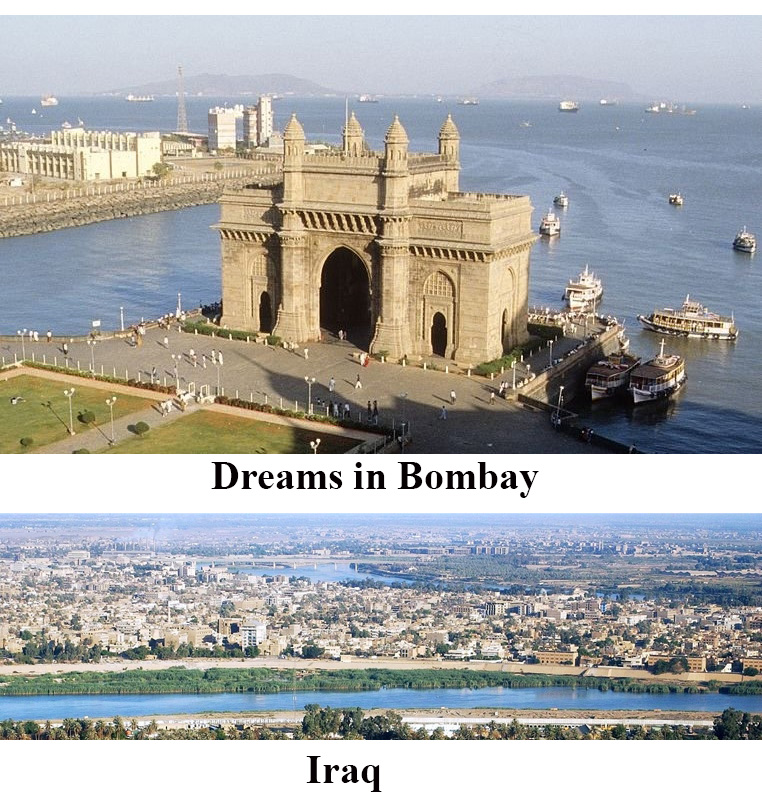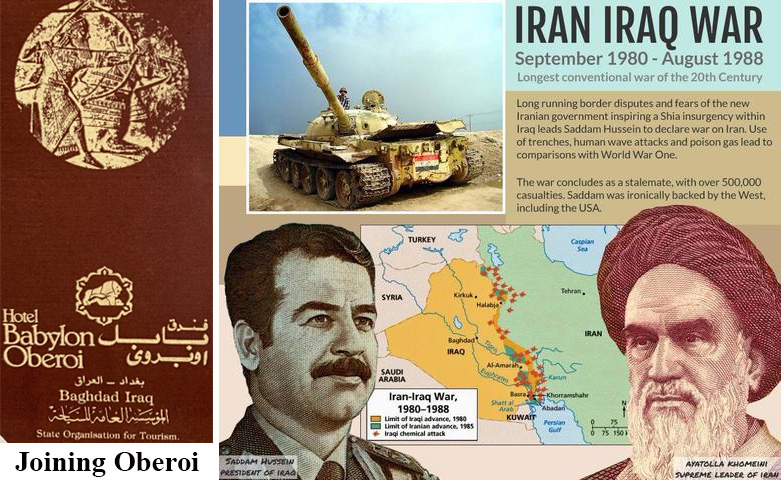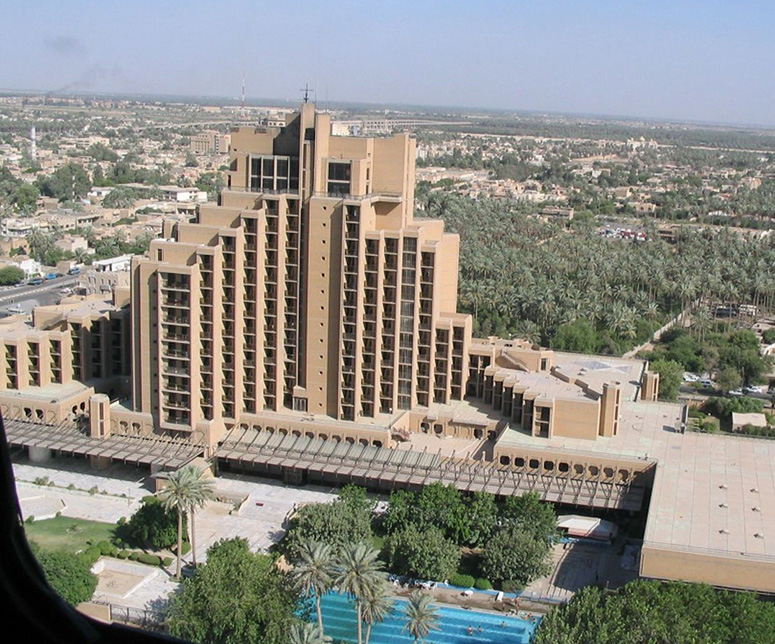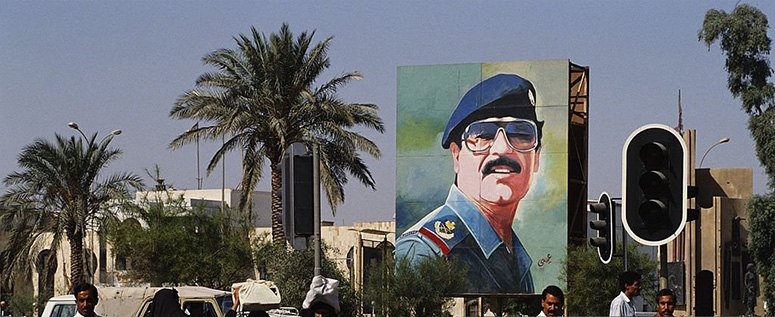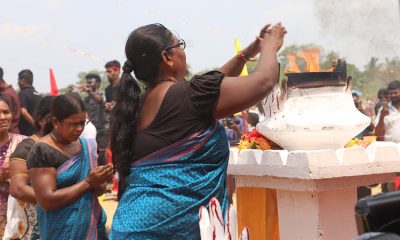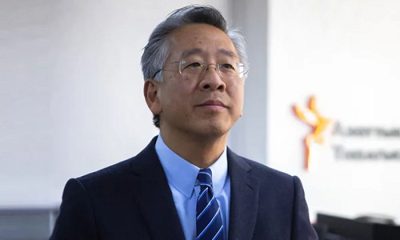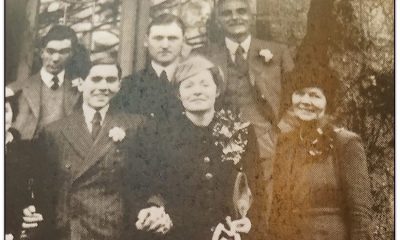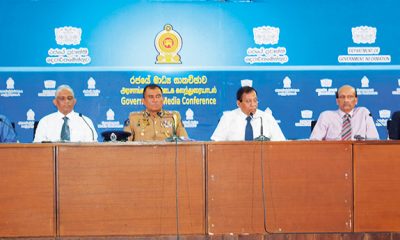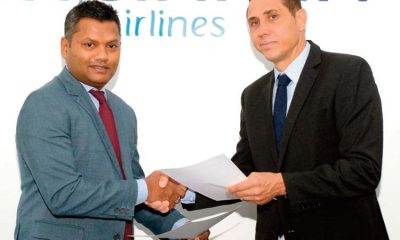Features
From Violent Colombo to Peaceful Baghdad
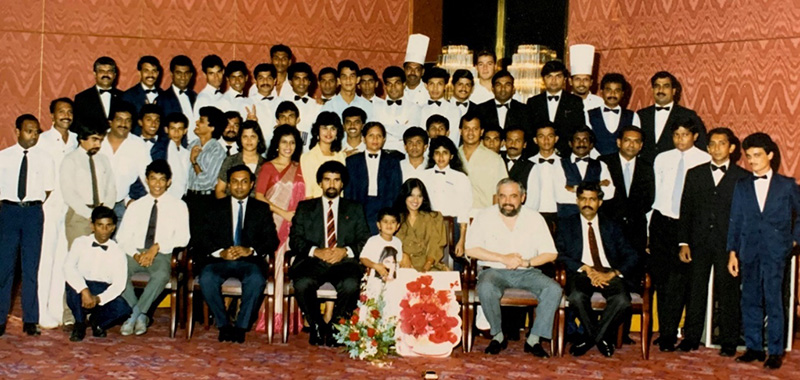
1.PASSIONS OF A GLOBAL HOTELIER
Dr. Chandana (Chandi) Jayawardena DPhil
President – Chandi J. Associates Inc. Consulting, Canada
Founder & Administrator – Global Hospitality Forum
chandij@sympatico.ca
Independent Sri Lanka has faced several disruptions over many decades. Despite short-lived ceasefires and the government’s attempts to encourage extremists to enter peaceful elections, by the late 1980s the government of Sri Lanka was fighting two wars – the LTTE civil war and the second wave of JVP insurgency. Stakeholders of tourism and hospitality industries continued to be resilient. However, by the late 1980s, the situation had deteriorated significantly, casting a shadow of uncertainty over the country’s future. My birth place Colombo had become a violent city with frequent deadly bomb explosions and killings.
In 1989, amidst the turmoil, I found myself at a crossroads in my career journey. As the Director of Food & Beverage at Le Meridien in Colombo, I harboured ambitions beyond the confines of familiarity. Guided by the belief that true growth lies beyond comfort zones, I sought opportunities on the global stage. That was uncommon for a hotelier from a developing country at that time.
Under the mentorship of Jean-Pierre Kaspar, the former General Manager of Le Meridien in Colombo, I envisioned a trajectory that transcended geographical boundaries. With his guidance, I embarked on a path of professional development, honing my skills in diverse settings from Singapore to Paris and London, laying the groundwork for my aspirations.
However, as I shared my ambitions with the new General Manager of Le Galadari Meridien Hotel, Paul Finnegan, I encountered unforeseen obstacles. Despite my eagerness to explore opportunities abroad, the prevailing circumstances constrained my options. Undeterred by setbacks, I resolved to forge ahead in pursuit of my global aspirations, bidding farewell to Le Meridien and Sri Lanka in search of new avenues aligned with my ambitious global career.
Then General Manager of Hotel Lanka Oberoi, Kawal Nain introduced me to Madan Mishra, Vice President for Oberoi in Iraq, and Regional Vice President & General Manager of Hotel Babylon Oberoi in Baghdad. Nain gave me a glowing recommendation. After the formal interview, Mishra invited me to an informal discussion at the London Grill at Hotel Lanka Oberoi, when he hosted my wife and me to dinner.
“As the operator of the three largest and best five-star hotels in Iraq, Oberoi has a key role to play in training hospitality workers and developing tourism in Baghdad and Mosul. Welcome to my top team” said Mr. Mishra as he shook my hand after I signed a two-year expatriate contract with Oberoi.
My boss at Le Meridien was surprised with my quick decision. Paul Finnegan told me, “Chandi, you have decided to leave a global five-star hotel company owned by Air France to join a small regional hotel chain run by an Indian company. That does not make any sense to me, unless you have an exceptionally good reason!” I rested my case by showing him my contract. I told him, “What Oberoi has offered me is five times my current salary at Le Meridien. If you match it and offer me an expatriate contract in another country, I will re-join Le Meridien.” Well, it eventually happened eight years later in 1997, when I opened Le Meridien in Jamaica as its General Manager.
As at that time in Iraq they did not like to use the term ‘Director’, my title would be ‘Food & Beverage Manager’. “You know that over the last 17 years, Oberoi sent two dozens of promising Sri Lankan hoteliers for universally recognized two-year management program at the Oberoi School of Hotel Management in New Delhi. None of them reached the level of Food & Beverage Manager at Hotel Lanka Oberoi.
You would be the first Sri Lankan to hold this very senior position at an Oberoi hotel” Kawal Nain said, and then Madan Mishra explained, “Chandi, you would be our third ranking leader at Babylon Oberoi after me and the Resident Manager. You would be overall in charge of ten food and beverage outlets and banqueting, kitchens, and stewarding. Your team will include 160 employees from 10 countries. Seven of the managers reporting to you would be graduates of the Oberoi School of Hotel Management,” Madan Mishra said.
Mishra then added, “Out of 52 Sri Lankans I have recruited for Babylon Oberoi, you are one of two persons not from Hotel Lanka Oberoi. My friend, Mr. Nain thinks very highly of you, and I respect his judgement.” The other non-Oberoi person in the team was the IT Manager, who was married to Shirani Perera, the Oberoi-trained Executive Housekeeper chosen for Hotel Babylon Oberoi. Prior to our departure to Iraq, I was asked by my new boss to lead the team of 52 from different departments during our travels and until reaching the Hotel Babylon Oberoi in Baghdad.
After the Iran–Iraq War ended in August 1988, with the killing of 500,000 people over a period of eight years, there was optimism about the future of Iraq. It was the longest conventional war of the 20th century, with USA and the West backing Iraq. The year 1989 was important for Iraq, which focused on re-building the country targeting stability, the economy, human capital, and tourism. The country desperately needed external expertise to place those aspirations on a fast track.
In May 1989, I embarked on a journey that would mark a pivotal chapter in my career. Departing from Colombo bound for Bombay (later renamed Mumbai), I found myself among 50 former employees from Hotel Lanka Oberoi. As the sole senior divisional head amidst this group of new recruits for Iraq, I naturally assumed a leadership mantle for the duration of our travels. My prior experience in India, gleaned during a two-week stint seven years earlier as a member of Sri Lanka’s national Judo team. This lent me a deeper familiarity with the country than my companions.
Following a night’s stay, graciously arranged by Oberoi Hotels in Bombay, we proceeded onward with a second flight to Baghdad. Despite the palpable anxiety shared by all 52 of us at the prospect of working in a war-torn region with a vastly diverse culture, we were happy with the high salaries offered to us. It swiftly became apparent to me that acclimatizing myself to three distinct cultures —Iraqi, Indian, and Oberoi— would be paramount. I resolved to make this adaptation my foremost priority and adjust my communication and leadership styles accordingly.
In the lead-up to our arrival in Bombay and during our brief sojourn in that vibrant metropolis, I embarked on a reflective exercise, drafting a concise yet strategic roadmap for my professional career goals. My key ambition was to ascend to the position of General Manager within an internationally renowned hotel chain in the coming years.
In addition, drawing upon my experience as a senior lecturer and my education in ‘Training Methodology’ on an ILO/UNDP Fellowship in Europe, I harboured aspirations of eventually returning to academia to obtain a globally recognized Ph.D. This ambition had already taken tangible form in the submission of a doctoral thesis proposal to the University of Surrey, in England where I had completed my master’s degree in international Hotel Management five years before.
Rounding out my handwritten plan before our descent into Iraq was a vision of eventually establishing an international consultancy firm specializing in hospitality management — an aspiration built upon the satisfaction derived from previous ad hoc consulting engagements.
The lands that now comprise Iraq have a rich historical tapestry, rooted in the ancient region of Mesopotamia, meaning ‘The land between the rivers’. This fertile territory, cradled by the Tigris and Euphrates rivers, nurtured a few of humanity’s earliest civilizations, including the Sumerians, Akkadians, Babylonians, and Assyrians.
Situated within the Fertile Crescent in the Middle East and Mediterranean — an arc of land of 11 modern-day nations spanning from Egypt to Iraq and Iran — this region played a pivotal role in the emergence of settled agricultural communities, dating back to the early ninth millennium BCE. Over millennia, Mesopotamia became a nexus of imperial power, experiencing successive dominions under Persian, Greek, and Roman rulership before becoming an integral part of the Islamic world after the seventh century.
In the aftermath of World War I, the modern nation-state of Iraq emerged from the former Ottoman provinces of Baghdad, Basra, and Mosul, under British colonial administration. Despite formal independence in 1932, Iraq remained under British influence during a disorderly era marked by monarchical rule and subsequent political upheavals.
The influence of the Arab nationalist and socialist Baath Party in 1968 heralded a period of relative stability, fuelled by substantial oil reserves, which enabled ambitious development initiatives and the creation of a formidable armed force. However, this stability in the country was eclipsed by the authoritarian reign of Saddam Hussein, who steered Iraq into disastrous conflicts, including the Iran-Iraq War (1980–1988), the Persian Gulf War (1990–1991), and the Iraq War (2003).
Geopolitically, Iraq is bordered by Iran to the east, Kuwait and Saudi Arabia to the south, Jordan and Syria to the west, and Türkiye, to the north. Despite its strategic location, Iraq possesses only a small coastline along the northern Persian Gulf, offering limited maritime access compared to its regional counterparts.
Iraq’s population has surged, surpassing 47 million — an exponential increase from its 1989 estimate of 17 million, akin to the population of Sri Lanka at that time. Since 1980, amidst three decades marred by conflict, there was a solitary year of peace in 1989 —a year that afforded me the opportunity to experience and engage with the complexities of Iraq first-hand.
Baghdad
Baghdad, a city steeped in vibrant history, was established in 762 AD along the caravan route bridging Asia and Europe. Its strategic position on the banks of the Tigris River propelled it to prominence as a cultural, commercial, and intellectual epicentre of the Islamic world. In 1921, Baghdad became the capital of Iraq.
Despite the tumult of wars and disruptions, Baghdad remained a beacon of learning and commerce, drawing both local inhabitants and international visitors to the country. Its rich tapestry of history finds expression in myriad attractions, from museums and shrines to mosques and bustling souks, contrasted with modern-day amenities such as upscale boutiques and vibrant dining establishments. Upon our arrival at Baghdad International Airport, the prominent presence of large portraits of Saddam Hussein told their own story.
Hotel Babylon Oberoi
Nestled in one of Baghdad’s most coveted neighborhood, adjacent to the verdant expanse of the green zone and overlooking the famed Tigris River, Hotel Babylon Oberoi epitomized five-star luxury. Boasting 300 lavishly decorated rooms and suites, the hotel provided guests with unparalleled convenience and comfort in the heart of down-town Baghdad. Vibrant souks and iconic landmarks were mere minutes away, ensuring an enriching stay for discerning travellers seeking leisure and exploration.
The hotel’s distinctive pyramid architecture and expansive gardens paid homage to Baghdad’s Babylonian legacy, while its culinary offerings stregnthened its status as a premier dining destination. With ten food and beverage outlets, including six dining venues, the hotel provided an enormous gastronomic experience. From the allure of a bustling casino, and a lively nightclub, to the tranquillity of a rooftop bar and a chic lobby lounge, the hotel catered to every indulgence.
For corporate gatherings, weddings, and events, the hotel boasted an elegant ballroom and banquet rooms capable of accommodating up to 600 guests, ensuring a seamless blend of sophistication and functionality. Meanwhile, the outdoor Olympic-size pool, fitness centre, and spa facilities epitomized luxury and wellness, offering guests the pinnacle of relaxation and rejuvenation.
As preparations unfolded for my family’s imminent arrival, I found solace in the warm embrace of Iraqi and Indian management colleagues. With full-board family accommodation secured in a spacious two-bedroom suite overlooking the Tigris River, I embarked on my role as an expatriate manager with a strong sense of purpose.
While my primary focus remained on laying the groundwork for my burgeoning global career, I willingly assumed additional responsibilities at the request of the General Manager. Tasked with overseeing the welfare of 52 Sri Lankan employees, I embraced this role with enthusiasm, cognizant of the importance of fostering a supportive and inclusive work environment. As I settled into my new job, I reflected with satisfaction: “Here I am at age 35, finally as an expatriate manager, living in the luxurious confines of a five-star hotel in a foreign land.”
Features
Modi’s April 5th Colombo Splash and Trump’s Tariff Turbulence – As Time goes by!
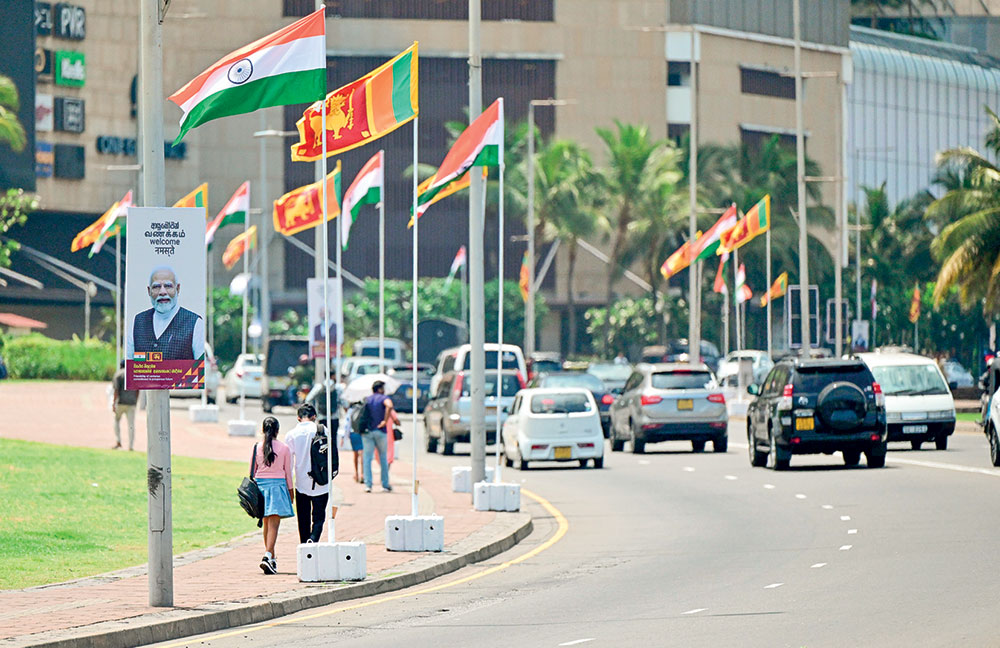
Prime Minister Modi is visiting Sri Lanka this weekend, from Friday, April 4th to Sunday, April 6th. This is Modi’s third official visit as Prime Minister, and the first since Anura Kumara Dissanayake became President and led the NPP to form a new government with a massive electoral victory. The official welcoming ceremony will be at the Independence Square on Saturday April 5th, 54 years to the day after the April 1971 insurrection launched by the JVP, the political progenitor of the present Sri Lankan government. Whether the historical irony of the occasion, if not the underlying coincidence, will be mentioned or memorialized at the official ceremony is unknown at the time of writing to meet the printer’s Friday evening deadline.
Anura Kumara Dissanayake was five years old in 1971 and, if my memory serves me well, Vasudeva Nanyakkara and Mahinda Rajapaksa might be the only living politicians from the 1971 parliament. They were both elected to parliament as young first time MPs in 1970. And quite by coincidence, there will be another wholly nostalgic gathering tomorrow in Colombo to remember Kumar David as comrade, professor and friend. In the 1970s, Vasudeva Nanayakkara, Wickramabahu Karunaratne and Kumar David were young LSSP Turks who were critical of both the JVP and the United Front Government of the SLFP, the LSSP and the Communist Party.
Vasudeva Nanayakkara has the singular distinction of being perhaps the only parliamentarian to be detained by the government both in 1971, in the wake of the first JVP insurrection, and after 1983 that ultimately precipitated the JVP’s second coming. In the now long historical perspective, the JVP campaigned for the United Front parties in the 1970 election and then took guns against them in 1971. The government’s ruthless put-down of the JVP in 1971 created a new template for state repression in Sri Lanka. And to round off the political circle, the 1971 repression helped the UNP to return to power in 1977, free the JVP leaders from jail, and then have its own violent tryst with the JVP in 1988/89. So, history repeated itself, but, pace Marx, both times as fake and both times as tragedy.
The LTTE added a third dimension to this otherwise two dimensional encounters, and by the time it was finished off in 2009, the JVP was emerging as parliamentary political force that at one time another formed governing alliances with the two SLFPs (first in its Horagolla version under Chandrika Kumaratunga and later in its Hambantota version under Mahinda Rajapaksa), as well as the UNP during its atrophying phase under Ranil Wickremesinghe. The Old Left itself, rather what was left of it, divided along the same three ways, and a cluster of them warmed up to JVP’s possibilities under Anura Kumara Dissanayake and his NPP umbrella. Kumar David himself became a prominent testifier for the new JVP/NPP possibilities using his weekly columns in the Sunday Island and the Colombo Telegraph to good effect. Indeed, in the last article he wrote before his passing, Kumar David congratulated Anura Kumara Dissanayake for his magnificent political achievement and expressed cautious optimism for the prospects under an NPP government.
Nostalgia aside, the serious political point here is that it would be a fool’s errand to trace the present JVP/NPP’s political lineage to the embryos of the 1971 or 1988/89 JVP. There is no unmutated political lineage in Sri Lanka. The political circumstances are also wholly different. The political reality over the last several decades has seen multiple scrambling of many eggs, including rotten eggs, to produce different governing omelettes at different times. The one that is obtaining now is a better product than most and one that is without the rotten eggs of the past. So, while there is historical irony in the NPP government’s April 5th official welcome to Prime Minister Modi, it would be incorrect and unproductive to read too much into it.
Trump’s Mad Old World
Far more than domestic realities, there is literally a world of difference in world politics between now and the 1970s. Donald Trump has seen to it this week with his globally sweeping reciprocal tariffs. He has put the planet’s trading system on edge, calling it America’s liberation day. He is not liberating anything, only reverting to the old ways of protectionism an in an insane manner. His forays are a belated assertion of outdated economic idiosyncrasies that he has been harbouring for all his pre-political life when no one took note of him politically speaking.
In the 1970s, Trump was a brash, young, New York upstart. And Modi in India was an RSS activist and made his first larger political mark in organizing protests against Indira Gandhi’s Emergency Rule. He was understudy to the flamboyant George Fernandes, later India’s foreign minister, and a socialist comrade of LSSP exiles in India who contributed their own mite to Mahatma Gandh’s mighty Quit India movement. Now Trump and Modi are at the pinnacles of national power in their respective countries. So is Anura Kumara Dissanayake, much younger and also far more composed and self-controlled.
Trump is unleashing disruption throughout the world, unilaterally upending the postwar world order that was set up under American leadership to oversee global trade and financial transactions. On balance, it has more than served its purpose of stabilizing world capitalism while releasing the human potential and resource endowments of many non-western countries, especially Asian countries, to emerge as robust economies and adding a long needed balance to the lopsided world economy hitherto dominated by the old industrial countries of the west. But these changes by themselves have not weakened the western economies and the European Union and most Americans other than Trump have to come to terms with them in a positive way.
Trump is abhorrent of these changes but not owing to any rational political reasons or objective economic considerations. Those who try to make sense of Trump’s erratic two months in office are beginning to see his obsessive egotistical compulsion to go down in history as America’s greatest president by simultaneously pursuing three unprecedented objectives: physically expand America’s boundaries – to wit his rantings over Panama, Greenland and Canada; make America great again by reverting to the 19th century mechanism of tariffs and dismantling the late 20th century framework of free trade; and by constantly musing about running for a third term in calculated disregard of the clear constitutional provision since 1947 limiting presidents only to two terms in office.
Underlying these pursuits are Trump’s crass racism, his lack of empathy for those who are structurally kept behind in the economy, and his envy towards those and against whom he measures himself and feels culturally inferior. The highs and lows of Trump’s universal tariff structure are reflective more of his biases than of any economic strategy. It is not by accident that Europe and Asia are set apart for special punishment, especially the ASEAN countries, and of course China. Putin’s Russia is not on the list.
At 44%, Sri Lanka is among the 15 worst hit countries in the world, and all of them are countries with small to medium size populations and at varying levels of economic development. At less than USD 3 billion, Sri Lanka’s share of US imports is less than 0.5%, but the US accounts for 23% of Sri Lanka’s exports – the single largest country share. The increased revenue to the US treasury from the increased tariffs on Sri Lankan goods would be less than a drop, while the consequences for Sri Lankan exports, especially the apparel sector, could be potentially disastrous. But there may not be a loss of market for apparel products in the US depending on their current price levels and consumer preferences.
The reciprocal tariff levels are generally 50% of what US has calculated to be the general tariff level against US imports by different countries. But this method of calculation has been criticized because it is based on trade deficit and is not a weighted average of tariffs on individual goods. There is madness even in the method of the Trump Administration. So, for Sri Lanka, the US reciprocal tariff of 44%, and it could be interpreted by a Trump official as generous 50% of the 88% tariff that Sri Lanka is unfairly applying to each imported good from the US. Never mind US imports to Sri Lanka amount to about USD 500 million. At the bottom end of the food chain, Sri Lanka apparently exploits America by a huge trade deficit! The same argument is writ across every country from Canada to China.
By these tokens, India has one of the lower reciprocal tariff levels at 27% in Asia and South Asia, while Bangladesh is slapped with 37% reciprocal tariff and Pakistan with 30%. More importantly, among the larger economies, India is taking a reportedly measured response to Trump’s tariffs as part of its preferred alignment with the Trump Administration. India appears to be keen on avoiding a confrontation with the US, while looking to expand its export mix to the US by taking advantage of the high tariffs imposed on other countries. For example, India is apparently looking to expand its export of electronic goods to US by taking advantage of the high 46% reciprocal tariffs applied to Vietnam which has a well established export sector in electronic goods.
To get back to where I started, Trump’s tariff turbulence bears a more crucial backdrop to Prime Minister Modi’s visit this weekend than the April 5th anniversary that falls on Saturday. Even the set agenda for talks between the Indian Prime Minister and Sri Lanka’s President could be overshadowed by Trump’s announcement of reciprocal tariffs. Not a single country is bent on retaliating to Trump’s tariffs for the sake of retaliation. Every country other than the US is keen to get rid of the tariffs, Trump willing.
The US accounts for 13% of global trade, and if the countries that account for 87% of world trade can deal only with the US without descending into tariff slaps between them, the US will be isolated, and Trump will have to face the wrath of the American consumers hit by rising import prices sooner than now expected. That would be the ultimate way out for the rest of the world from current American madness.
by Rajan Philips
Features
Cardinal vs Mastermind

The Easter Sunday bomb attack on three churches and four hotels on April 21, 2019 that left 269 dead (including 40 foreigners) and wounded about 500 was a day of infamy. It had shattered the peace and tranquility if not also harmony that prevailed from 2009. This was after 30 years of fratricidal conflict (100,000 dead) and 18 months of terrorism (60,000 dead at over 100 a day in a year and a half between 1988-9) had ended.
The agony, grief and pain became boundless when it was discovered that specific actionable operational intelligence received on the April 4, 2019 and thereafter continuously until D Day (Apr. 19) from an undisclosed Indian intelligence agency had been handled with total incompetence and mindless indifference. Despite the said churches and hotels being accurately identified as targets, the crack STF was sent to guard the Indian High Commission where they did a great job!
Into this cataclysmic inferno that had paralyzed all government leaders, stepped Cardinal Malcolm Ranjith. By his words and actions, he prevented any retaliatory attacks in a country with a despicable history of mob violence. He was SL’s hero, honoured, respected and loved by all.
Foreign Intelligence and Investigation agencies including the Federal Bureau of Investigation (FBI), Australian Federal Police (AFP), Internal Security Department of Singapore (ISD), Israeli (Mossad) and of course Indian, investigated the tragedy. They reported back to their governments that all the perpetrators, ideological extremists linked to ISIS, a proscribed global terrorist organization, were dead. Blood relative collaborators of the two families involved, anticipating arrest, had committed suicide in their homes as far apart as Kattankudy and Colombo. Nearly 800 other suspects were arrested of whom more than 700 were either bailed out or released, bringing no credit to the already discredited Police.
Only 25 of them have been charged in court. There was no second wave although scaremongers and instant experts warned that there was a possibility of more attacks. Just to make sure, SL through its heads of missions in USA and Australia, contacted the FBI and AFP respectively. It reassured SL the case was closed.
This wasn’t good enough for some in SL where politically biased rumours are the essence of life. Uttering untruths is mother’s milk to the majority. About two years later certain biased media started creating doubts as to who had ‘organized’ the suicide bombings. Despite the conclusions reached by the world’s best known Intelligence and Investigation agencies (less the KGB that had no immediate interest) even the good Cardinal had been persuaded by discredited state intelligence officers that there was a suspected ‘mastermind’ with a murderous political motive behind the attack.
They had drawn attention to the fact that the dysfunctional government in power was vapourised at the general elections the following year. That this defeat was an obvious consequence to their miserable performance was ignored. No attempt to ask for India’s help was made. Why?
So SL was asked to believe that in its society there existed possibly two barbarians in the mould of Ghengis Khan who could plan and execute mass murder just to take over state power. They played on the inherited and exploited gullibility of the people. It was Goebbels who brilliantly proved that a lie continuously repeated was eventually believed. And there was no TV then. How perfidy thrives.
By coincidence a couple of CID officers too were apparently spreading this very same story about two military officers. That the local government elections a year before the Easter Sunday tragedy, had seen the despised government trounced, appeared to have been conveniently or deliberately forgotten, a national trait. It immediately drew attention away from the guilt of a criminally negligent government and police intelligence. Politicians who had been like mice then, now appeared and joined the chorus.
The Cardinal thereafter never let go. He didn’t think that the FBI, AFP, and other world class Investigation agencies should have the last word. He placed his faith in the informants from the police. Their Intelligence heads and the IGP were found guilty and punished (together with the President) for criminal negligence in the Easter Sunday massacre. He embraced them. The victims were almost all from his Catholic flock. He was fighting for them. He would be relentless and unforgiving to the point of becoming obsessed.
There was a time when defenestration was practiced by the Police. The deaths in 1966 of Sergeant Tilakewardene and Dodampe Mudalai after being thrown from the fourth floor of Police HQ was an example of how ‘evidence’ was obtained. Maybe the Cardinal did not know. Many Catholics however believed he was becoming political. He may have become insensitive to the fact that giving false evidence was an age old tradition. In that SL was world class
There were seven bombers. Four of them were poor radicalized youth led by Zaharan Hashim who even fought the more conservative adherents in Kattankudy with swords. The Colombo three were from a very rich and highly educated family.
The evidence the Cardinal trusted most were the ramblings of one Azad Moulana now seeking asylum in Europe, the involvement of Director Military Intelligence (DMI) and the telephone calls made by the hesitant bomber who left the Taj Samudra hotel and blew himself up in a ‘hotel’ near the Dehiwala Zoo.
According to Moulana, self styled ‘Coordinating Secretary’ to Pillayan and now a self-confessed accomplice to acts of terror thereafter, the Directorate of Military Intelligence (DMI) and Pillayan who was in Batticaloa prison, conspired to brain wash and train Zaharan and three others to murder Christians. The four were being held in the same prison as Pillayan.
The fact that the Director of Military Intelligence (DMI), Maj Gen Suresh Sallay, had been serving at the SL High Commission in Malaysia from 2017 for two years and immediately thereafter one year (2019) in Delhi at the National Defence College (NDC) at the exact time he was supposed to be in SL, appeared to be of no consequence to Moulana and his new ‘accomplices’. They said Gen Sallay had visited SL between tours.
This was supposed to be enough time to visit Batticaloa prison, conspire with four terrorist suspects (who had vandalized a Buddha statue in Mawanella) to kill two policemen on guard duties at Vavanativu, train them in shooting, and store explosives and detonators in Puttalam. Was Gen Sallay training at the College of SL Miracles and not the NDC?
Who is Maj Gen Suresh Sallay? Did the Cardinal know he had been an outstanding officer after initially joining the Infantry (Gemunu Watch). He ended up serving in the Military Intelligence Corps where his intellect, analytical skills, trilingual fluency and excellent writing skills, if not his rugby were assets. He became DMI and was later the first military officer to head the State Intelligence Service (SIS) in a 40-year career. His mother is a Catholic, father a Malay and his wife a Buddhist. Is it the profile of a ‘mastermind’ of a radicalized extremist terror group that the Cardinal and his informants prefer to believe.
Finally, let’s get back to the Taj Samudra hotel bomber who hesitated. He was seen coming out of the hotel without detonating his bomb. He was seen on CCTV talking to someone. That was apparently conclusive evidence that he had a handler who was reporting to a mastermind. He went from there to an obscure ‘hotel’ near the Dehiwala Zoo. Later he was seen going to a mosque for prayers after which he went back to the same ‘hotel’ where he blew himself up, killing two people, not obviously an agreed target.
But what if there is a recording of his conversation? Was it with a woman? Could the woman be his wife? Who else would a suicide bomber listen to and then hesitate to perform? Who else would attempt to dissuade him other than a person who knew she would be a widow soon, if she did not succeed? Can the Cardinal and his informants mull this over?
Is this why the Cardinal has now said he was going to take to the streets? He has said he is unhappy that the government leader who said he would bring the mastermind to face justice has disappointed. The Cardinal would lead protests on the streets. Actually it is the Katunayake highway. His followers would march up and down from Katuneriya to Colombo and back.
Are his informants converts not to the church but to political opportunism? Did they rush to the Cardinal to ask for still more time? Maybe until doomsday? Maybe the very Good Cardinal and his closest lieutenants will now have more time to attend to the church and all his flock instead of bucking the world’s best Intelligence and Investigation agencies and cavorting with imaginary masterminds.
What must not happen is that this endless mistaken media extravaganza does not end in communal disharmony or worse. It has thus far been avoided as the pain that the Catholics endure has been shared by all.
There should also be an apology to Gen Suresh Sallay too. He has conducted himself with dignity and restraint as an officer and gentleman under extreme stress in deference to the Cardinal.
by Zingara
Features
Karu Jayasuriya’s time as Mayor of Colombo:revenue gains and effective administration
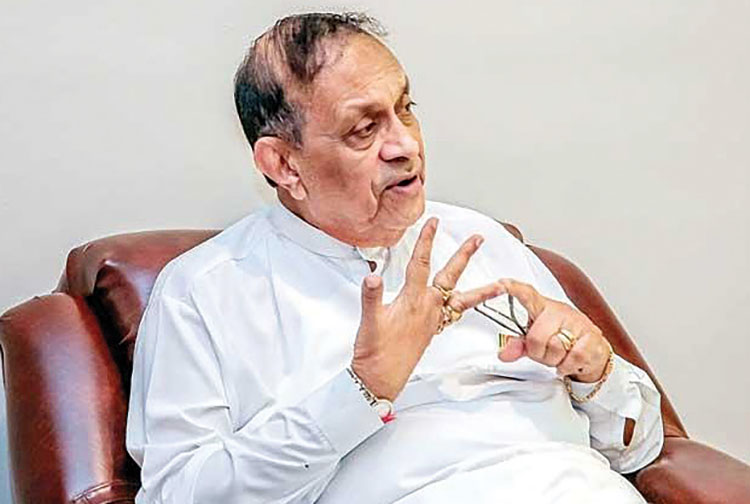
Back stabbing within his own party, CBK keeps to time
During his time as Mayor of Colombo, Karu Jyasuriya had refused to avail himself of benefits and entitlements, opting to spend his own funds for necessary expenditure. These included the monthly allowance, refreshment allowance and fuel allowance allocated to the Mayor. Instead, he ensured that all allocated allowances were routed to the Mayor’s Fund and were utilized for the betterment of the City and its residents.
Karu even declined to accept the official vehicle provided by the Colombo Municipal Council (CMC) and instead used his own vehicle for official Mayoral work. But this did not dissuade opposition members of the CMC from questioning Karu at every council meeting demanding to know details of CMC funds spent by his administration. “What is your monthly fuel allowance?” or “How much did you spend on fuel last month?” were common questions thrown at him.
These questions and jibes by the opposition often made it to the headlines of the government-run ‘Lake House’ newspapers the very next day. The headlines featured were along the lines of “Council member questions Colombo’s Mayor on his fuel allowance…!!” or “CMC members express suspicion that Mayor has secretly increased refreshment allowance in the past months…!!”
According to Karu, despite replying to these unfounded allegations, the rejoinders were not featured prominently in print. “More often than not they were completely ignored by the newspapers…” he says. To his dismay, Karu was to later find out that certain politicians of his own party were behind the acts of these opposition council members. Feeling insecure and threatened by Karu’s rising popularity among the people, these United National Party (UNP) politicians had allegedly bribed several opposition councilors to pose embarrassing questions to the UNP Mayor.
“I heard that sums up to five thousand rupees were paid to ask certain questions. The same tactic was being used to publish them in government-owned Lake House” Karu alleges. He believes this was yet another unfortunate result of the competitive preferential voting system in the country that often pits party colleagues against each other.
But an unruffled Karu had merely continued with his work. In addition to the special committee consisting of councilors, Karu also took steps to form an advisory committee of professionals from various sectors to provide necessary advice and guidance to the administration of the CMC.
According to Karu, these professionals were unpaid and provided their services voluntarily. “Several experts and professionals were also called in to analyze and provide feedback on the CMC and its functions in the hope of receiving constructive criticism…” Karu says.
Housing for the underprivileged in Colombo was also an issue during Karu’s time as mayor. Several families living in Colombo city limits at the time had sought shelter in dilapidated shipping containers due to the lack of adequate housing. As Mayor, Karu had taken steps to construct new houses in Slave Island for these families, allowing them to leave their unsafe shelters behind and move into better housing provided by the city.
At that time Crow Island in Mattakkuliya was notorious as a paradise for criminals such as thieves, bandits and rapists. Shockingly, in just a short period several women had been raped and killed in the area. The gruesome incidents created a sense of fear among people. As Karu recalls, many had expressed their reluctance to travel through the area even during the daytime. Hearing these reports as Mayor, a concerned Karu visited Crow Island. What he saw was that the area was indeed enveloped in a dark and sinister feeling. Determined to change this image Karu directed the CMC to give Crow Island a much-needed face-lift. The result was a much more pleasant and welcoming Crow Island devoid of criminal activities.
According to Karu, by this time many of the roundabouts in Colombo were in a state of neglect. Coming up with an ingenious plan he decided to allow private companies in the area to maintain these roundabouts. “They were expected to beautify and maintain the roundabout allocated to them. The CMC did not pay them but instead, they were allowed to put up promotional signs saying they were maintaining the roundabout. This method was later adopted by many other municipalities of towns across Sri Lanka.
It was also Karu who first introduced high pressure water guns to rid the city of the poster menace. At the time Colombo’s walls and public spaces were covered with promotional posters of politicians, and tuition teachers as well as films and teledramas creating an unsightly scene. Several gangs of thugs had begun putting up these posters for a fee, and fights among them also became a common occurrence.
Karu says as a solution he decided to put up CMC sponsored notice boards on major roads and streets in Colombo for posters and other promotional material to be displayed. Next, he took steps to ban posters on walls and in any other public spaces. But as some groups continued to ignore the CMC’s directives, Karu refusing to back down introduced high pressure water guns dubbed ‘Poster Killers’ by the public to remove any material displayed on any surfaces not allowed by the CMC. Every day after midnight CMC workers would set out to remove posters in the city as directed by the mayor. According to Karu, the poster wars were significantly reduced thereafter.
During his time, Karu says the CMC funded the development and restoration of various places of worship located within the city of Colombo. Funds were provided to all religions with Karu ensuring no particular religion was favoured. One place of worship that benefited through this program was the Thai Temple located in Mattakkuliya, Colombo which was in a state of disrepair at the time.
As Mayor, Karu had also taken steps to renovate the popular Viharamahadevi open-air theatre to provide more space and facilities to hold various types of shows. The Old Town Hall building in Pettah and the Town Hall theatre were other venues that were renovated and modernized during his tenure.
Seeking to further improve facilities available to the public, Karu also observed that many public children’s parks dotting the city of Colombo were in a dilapidated state. He ordered them to be renovated and more facilities added so that children could play safely. The city’s public swimming pool also got a much needed face lift during this time.
According to Karu, the assessment of private properties to levy municipal rates on them, which was a key income stream of the CMC, was in total disarray at the time. “It was discovered that assessment taxes had not been collected for over a decade from many luxury houses in the affluent Cinnamon Gardens area in Colombo while others had only been taxed meagre amounts…” Karu recalls. He says this was a failure on the part of his predecessors who had failed to launch a proper investigation or assessment of the situation.
“The CMC was found to have lost millions of rupees in revenue as a result. I ensured the situation was rectified through the advisory committees and the income of the CMC shot up thereafter…” he says.
Meanwhile, in a bid to further end all corrupt practices and to address any shortcomings of the CMC, Karu decided to introduce a 24-hour investigation unit. The public could inform the newly formed unit of any issues at any time of the day by calling on the hotline introduced.
But Karu was also keen on giving Colombo’s residents the opportunity to approach him directly. To this end, he introduced the phone number 077 771 2345 on which the public could call him directly with any queries or issues faced by them. Karu says he would even receive calls in the middle of the night but took steps to provide immediate solutions to the many problems related to him by Colombo’s citizenry.
One day as Karu was having lunch, he received a call from Prime Minister Sirimavo Bandaranaike. “Karu the street lights in front of my house on Rosmead Place have not been switched off for three days. I saw your phone number in the newspaper and decided to call as I could not stand this waste any longer… she had said. Following the short conversation, Karu called the Municipal Engineer and instructed him to immediately rectify the issue.
While heads of organizations often prefer to hold on to all administrative powers, Karu during his 16-month tenure as Mayor of Colombo attempted to maintain a distribution of his powers instead. “I granted all necessary powers to my deputy Omar Kamil. Meanwhile, the required powers to take necessary action were also granted to the advisory committees headed by Municipal councilors, he recalls.
According to Karu, he was inspired to do so through his own personal experience. “I understood that people tend to work better when they are given the freedom and necessary powers to do so…” he says.
Karu notes therefore he ensured all Municipal Councilors in spite of their political party affiliations received the required administrative powers. “For example, though the UNP held the power of the CMC, I even appointed councilors from the opposition to head numerous standing committees in an attempt to distribute these powers…” Karu says.
It was during his time as Mayor of Colombo that it was announced Prince Charles, the heir to the British throne would visit Sri Lanka to attend the country’s 50th Independence celebrations. Karu engaged in conversation with Prince Charles during this visit and as Mayor of Colombo, was tasked with presenting the ‘Golden Key to the City’ to this Royal visitor.
To discuss the necessary arrangements, the then President, Chandrika Kumaratunga summoned Karu to ‘Temple Trees’ one morning. But with an already scheduled meeting at 10:30 a.m. with the West German ambassador, Karu found himself in an unexpected dilemma. This was because President Kumaratunga was notorious for her lack of punctuality. She would often arrive fashionably late even to official government engagements. Years later Kumaratunga would say this was because she would only move on to a task after finishing the one at hand, often making her late for the next appointment.
“Madam President, I will attend the discussion at 9 a.m. But if you get late I will have to leave as I must keep an already scheduled appointment for 10.30 a.m. with the West German ambassador…” Karu had responded. On the day Karu arrived at Temple Trees several minutes ahead of the 9 a.m. meeting only to be informed that the President was yet to arrive. “I will wait for thirty minutes…” Karu had thought to himself. But to everyone’s surprise, Kumaratunga had hurried in just two minutes past 9 a.m. saying “Karu I am sorry for the delay..!”
“The president was known to get late for hours on end. Some high-level diplomatic visitors were even forced to leave without having met her due to her tardiness. On the day though she was only delayed by two minutes and I was quite surprised that she apologized politely for having kept me waiting for that short time…” Karu says.
While the discussion that followed was cordial, President Kumaratunga had even humbly apologized for the false allegations she had leveled against him during the previous local council election.
During his 16-month tenure as the Mayor of Colombo, Karu believes he was able to serve the people of Colombo and also increase the revenue of the CMC due to his policy of delegating the administrative responsibilities of the Council to work as a team. Karu had only given leadership when necessary and worked towards improving the management of the CMC.
A prime example of this is the ’99 Day Rapid Development Program’ initiated by him. Karu says the program proved more successful than he had initially expected due to the time and effort put in by all staff of the CMC. “We worked on all holidays and weekends during this program…” Karu recalls. Even though senior staffers of the CMC are not entitled to overtime pay and therefore could not be forced to work on holidays, Karu says certain female engineers had chosen to report to work even on holidays during this program despite being pregnant at the time.
Moved by their commitment and dedication Karu was able to later provide these employees with a oneoff allowance for the work carried out during holidays after obtaining permission from the Chief Minister of the Province and the Attorney General after getting a motion passed at a CMC meeting.
Karu recalls the program and the relevant development activities carried out had so impressed the West German Friedrich Naumann Foundation that it led to the program getting international attention.
Perhaps due to his background, Karu had always attempted to carry out many development programs with the assistance of the private sector. This was made easy due to the image he had built over the years as a successful entrepreneur in the private sector. Towards the end of his tenure, Karu had sought to commence a recycling project in the town of Meepe which was to be funded by the Asian Development Bank (ADB). The results of the feasibility study confirmed the project would pose no harm or threat to the environment.
However, politicians of the People’s Alliance representing the areas of Avissawella, Homagama and Maharagama not only voiced their strong opposition to the proposed project but also propagated a negative view about it among residents of the area. As a part of this campaign, all politicians of the Colombo district representing all political parties hoping to contest the then upcoming provincial council elections were called to make a public pledge promising to not allow its implementation if elected. Among those who chose to take this pledge were all the provincial council hopefuls of the UNP. According to Karu, possible environmental impacts of the project had been exaggerated to obtain this result. Karu’s opposition was to no avail. Faced with stiff public opinion from residents of Meepe, the ADB decided to withdraw from the project and commit the funds elsewhere in the region.
At the time a well-known care home for senior citizens in Borella was managed by the CMC. While this institution was home to many elderly women and men, it was no secret that the place was riddled with corruption. Having ordered an investigation into these allegations, Karu discovered that many of them were true. “Some were even profiting off the meals and food items intended for the elderly living in the care home. Even though it was required that healthy and nutritious meals be provided to the residents more often than not the meals were paltry and far from nutritious…” Karu recalls.
He not only put a stop to the corrupt practices, but was also able to obtain the support of various private businesses, the Lions Club and the Rotary Club to organize volunteer programs at the care home. Karu was also able to move the care home to a better fully equipped facility in the town of Battaramulla during his tenure as mayor.
But even as Karu implemented various new plans while working towards the betterment of Colombo’s citizenry, this resulted in a number of UNP stalwarts feeling insecure and threatened by him. Many thought Karu would overshadow them and become more popular among the people. This prompted them to launch a secret campaign against their own colleague. According to Karu, it was this campaign against him that eventually forced him to shift his political career from Colombo to the Gampaha district.
(Excerpted from the biography of Karu Jayasuriya by Nihal Jagathchandra)
-

 Business2 days ago
Business2 days agoDaraz Sri Lanka ushers in the New Year with 4.4 Avurudu Wasi Pro Max – Sri Lanka’s biggest online Avurudu sale
-

 News7 days ago
News7 days agoBid to include genocide allegation against Sri Lanka in Canada’s school curriculum thwarted
-

 Business3 days ago
Business3 days agoStrengthening SDG integration into provincial planning and development process
-

 Features21 hours ago
Features21 hours agoStarlink in the Global South
-

 Business2 days ago
Business2 days agoNew SL Sovereign Bonds win foreign investor confidence
-

 Sports4 days ago
Sports4 days agoTo play or not to play is Richmond’s decision
-

 Features21 hours ago
Features21 hours agoModi’s Sri Lanka Sojourn
-

 Latest News6 days ago
Latest News6 days agoIPL 2025: Rookies Ashwani and Rickelton lead Mumbai Indians to first win

